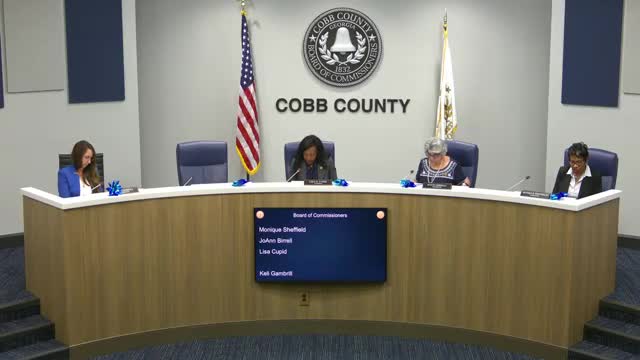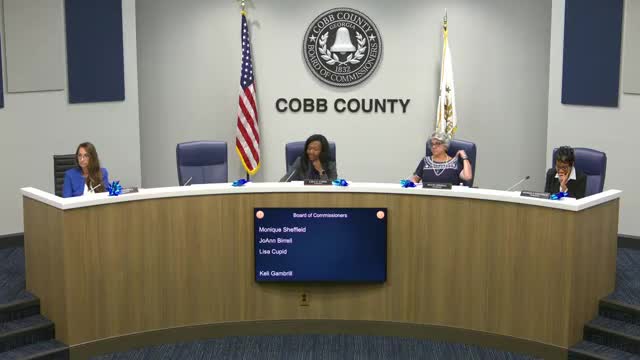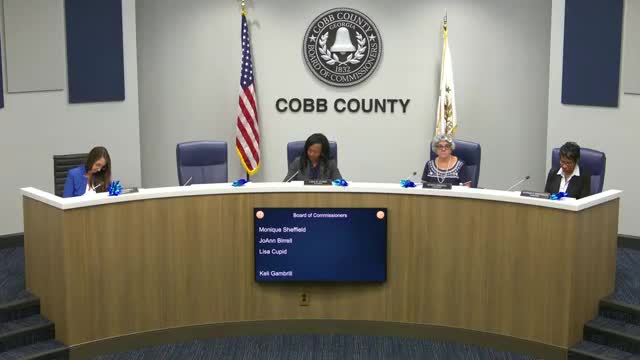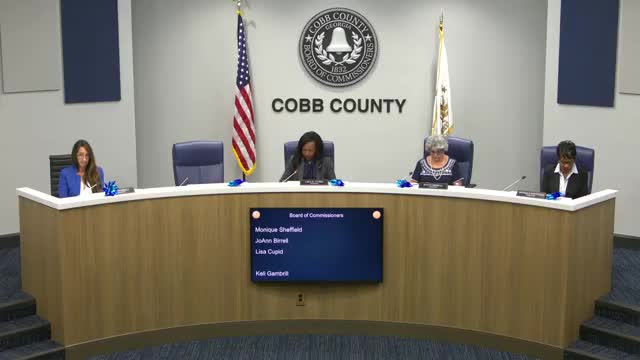Article not found
This article is no longer available. But don't worry—we've gathered other articles that discuss the same topic.

Board appoints Nadia Fawcett to Cobb County Planning Commission

Board approves Chastain Road contract and holds condemnation item for Pete Shaw Road after constituent concerns

Commission adds and approves rollback‑rate certification required by state law; consent agenda passes 4‑0

